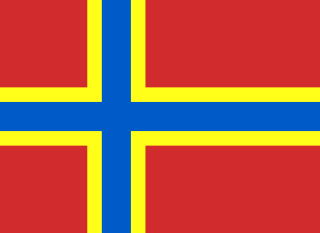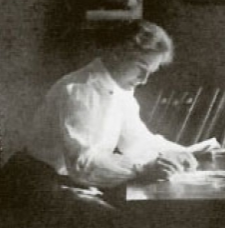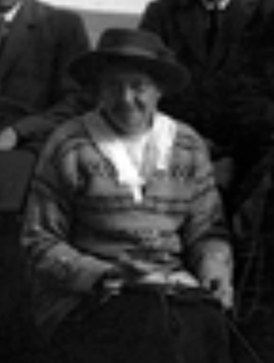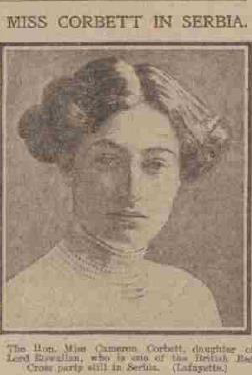Related Research Articles

Stanley Cursiter was an Orcadian artist who played an important role in introducing Post-Impressionism and Futurism to Scotland. He served as the keeper (1919–1930), then director (1930–1948), of the National Galleries of Scotland, and as HM Limner and Painter in Scotland (1948–1976).
The Orcadian is the oldest newspaper in Orkney, Scotland, first published in 1854. At first a monthly paper, it soon became a weekly. The newspaper is based in Kirkwall but printed in Glasgow for sale every Thursday. It is part of the Orkney Media Group, formed out of a partnership with a competing newspaper, Orkney Today, in 2007.

Orcadians, also known as Orkneymen, are an ethnic group native to the Orkney Islands, who speak an Orcadian dialect of the Scots language, a West Germanic language, and share a common history, culture and ancestry. Speaking Norn, a native North Germanic language into the 19th or 20th century, Orcadians descend significantly from North Germanic peoples, with around a third of their ancestry derived from Scandinavia, including a majority of their patrilineal line. According to anthropological study, the Orcadian ethnic composition is similar to that of Icelandic people; a comparable islander ethnicity of North Germanic origin.
Florence Marian McNeill, was a Scottish folklorist, author, editor, suffragist and political activist. She is best known for writing The Silver Bough, a four-volume study of Scottish folklore; also The Scots Kitchen and Scots Cellar: Its Traditions and Lore with Old-time Recipes.

Agnes McLaren FRCPI was a Scottish doctor who was one of the first to give medical assistance to women in India who, because of custom, were unable to access medical help from male doctors. Agnes was active in social justice causes including protests against the white slave trade. She signed the 1866 women's suffrage petition and was secretary of the Edinburgh National Society for Women's Suffrage alongside her stepmother, Priscilla Bright McLaren. In 1873 she travelled with Priscilla and Jane Taylour to give suffrage lectures in Orkney and Shetland. Her father had supported the campaign of first women who sought to study medicine at University of Edinburgh and Agnes became friends with Sophia Jex-Blake, one of the Edinburgh Seven. Her father did not however, support Agnes' own ambitions in this area. And as she could not graduate in medicine in Scotland, she went to study in France and later, in order to be permitted to practice at home, became a member of the Royal College of Dublin.

Marion Gilchrist was the first female graduate of the University of Glasgow, one of the first two women to qualify in medicine from a Scottish university; and a leading activist in the Women's suffrage Movement in Scotland. In recognition of her achievements she has been honoured in a number of ways.

Ethel Agnes Mary Moorhead was a British suffragette and painter and was the first suffragette in Scotland to be forcibly-fed.

The Scottish Women's Hospitals for Foreign Services (SWH) was founded in 1914. It was led by Dr Elsie Inglis and provided nurses, doctors, ambulance drivers, cooks and orderlies. By the end of World War I, 14 medical units had been outfitted and sent to serve in Corsica, France, Malta, Romania, Russia, Salonika and Serbia.

Wilhelmina Hay Abbott, also known by the name "Elizabeth Abbott," was a Scottish suffragist, editor, and feminist lecturer, and wife of author George Frederick Abbott.

Mary Charlotte Murdoch was a Scottish-born physician and suffragist. She had a lifelong association with Kingston upon Hull, where she was the first woman doctor, a suffragist, and car owner.

Christina Jamieson (1864–1942) was a British writer, playwright and suffragist known for her association with the Shetland Isles.

Elizabeth "Dorothea" Chalmers Smithnée Lyness was a pioneer medical doctor and a militant Scottish suffragette. She was imprisoned for eight months for breaking and entering, and attempted arson, where she went on hunger strike.

Dr Elizabeth Pace was a Scottish medical doctor, suffragist and advocate for women's health and women's rights.
Dr Alice McLaren was a Scottish medical doctor, gynecologist, suffragist and advocate for women's health and women's rights. She was the first woman medical practitioner in Glasgow.

The Orcadian Women's Suffrage Association was an organisation involved in campaigning for women’s suffrage, based in Orkney, Scotland.
Mary Anne Baikie a Scottish suffragist who established the Orcadian Women's Suffrage Society (OWSS) and grew the membership and public interest in the debate, in the Orkney Isles, during the campaigns for Votes for Women.

Jessie Margaret Soga, LRAM was a Xhosa/Scottish contralto singer, music teacher and suffragist. She was described as the only black/mixed race suffrage campaigner based in Scotland. Soga was a lead member of the Women's Freedom League in Glasgow and later joined the Women's Social and Political Union; but did not carry out militant activity, using her organisational skills and musical talent to raise funds.

Mary Eva Hastings Morris was a Welsh medical doctor and suffragist. Born in Dolgellau, she grew up in Malta, before returning to Wales to study medicine at the University College of Wales in Aberystwyth. She went on to become the first female doctor from Aberystwyth. After spells working at Great Ormond Street Children's Hospital in London, the North Devon Infirmary, and Bristol Royal Hospital for Sick Children and Women, Morris moved to Bath, where she worked as a medical inspector.

Elsie Cameron Corbett JP was a volunteer ambulance driver and major donor to the World War One Scottish Women's Hospital for Foreign Service in Serbia. She was a prisoner of war in 1916 and won medals from the Serbian and British governments. She was also a justice of the peace, a leading suffragist, temperance supporter, folklorist and diarist.
Bina Cursiter was a Scottish suffragist, who played a leading role in Orcadian Women's Suffrage Society, and helped to galvanise the organised women's movement in Orkney.
References
- 1 2 3 4 5 6 7 8 Grahame, Fiona (11 November 2020). "Dr Mary McNeill: Orkney Hero #LestWeForget". The Orkney News. Retrieved 16 September 2021.
- 1 2 3 "The University of Glasgow: People: Mary Lauchline McNeill". University of Glasgow. Retrieved 16 September 2021.
- 1 2 Cornelis, Marlene (2018). "My dears, if you are successful over this work, you will have carried women's profession forward a hundred years: The Case of the Scottish Women's Hospital For Foreign Service" (PDF). Nenerlandse Vereniging voor Medische Geschiedenis (M.Litt Dissertation, University of Glasgow 2018). Retrieved 16 September 2021.
- 1 2 "Orcadian Women's Suffrage Society". The Orcadian. 22 January 1910. p. 2.
- 1 2 3 4 "Obituary". British Medical Journal. 2 (3531): 471. 8 September 1928 – via JSTOR.
- 1 2 3 Manson, W Nicol (September 2017). "The family of the Rev Dr Daniel McNeill, Free Church Minister, Holm Orkney". Sib Folk News. 83: 16.
- ↑ "Florence Marian McNeill: The Scottish Renaissance woman who history should never forget | The National". 26 July 2020. Archived from the original on 26 July 2020. Retrieved 16 September 2021.
- ↑ McNeill, Florence Marian (2010). The Silver Bough. Canongate Books. p. 1. ISBN 9781847675200.
- ↑ "Local Intelligence". The Orkney Herald, and weekly Advertiser and Gazette for the Orkney and Zetland Islands. 15 April 1908. p. 5.
- ↑ "District News:Holm". The Orcadian. 21 January 1911. p. 4.
- ↑ "District News: Holm". The Orkney Herald and Weekly Advertiser and Gazette for the Orkney & Zetland Islands. 8 November 1911. p. 5.
- ↑ "Formation of Women;s Suffrage Society in Orkey". The Orkney Herald, and Weekly Advertiser and Gazette for the Orkney & Zetland Islands. 27 October 1909. p. 5.
- ↑ "Federation notes: Scottish: Work in Orkney". The Common Cause. 30 June 1910. p. 186.
- ↑ "Christian Fellowship Union". The Orkney Herald and Weekly Advertiser and Gazette for the Orkney & Zetland Islands. 8 February 1911. p. 1.
- ↑ "Orcadian Women's Suffrage Society". The Orcadian. 25 February 1911. p. 7.
- ↑ "Medical Services in Orkney". The Orcadian. 31 August 1912. p. 1.
- ↑ "Northern Doctor sued". The Aberdeen Daily Journal. 25 June 1919. p. 3.
- ↑ "Private papers: Private Papers of Dr M L McNeill". Imperial War Museum. Retrieved 16 September 2021.
- ↑ Grahame, Fiona (2 April 2020). "Dr Mary McNeill: Orkney Hero". The Orkney News. Retrieved 16 September 2021.
- ↑ "The National Archives' reference WO 372/23/27202". The National Archives. Retrieved 17 September 2021.
- ↑ "A gude cause maks a strong erm". YouTube. 13 March 2019. Retrieved 16 September 2021.